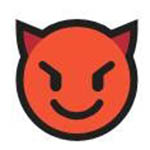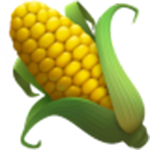Editor's Note: Audio grabs available via Hightail.
The AFP-led Australian Centre to Counter Child Exploitation (ACCCE) is urging parents to understand the double meaning of emojis and acronyms to help identify if their children are being targeted by online predators.
AFP Commander Human Exploitation Helen Schneider said with many students receiving their own tablets and mobile phones for the first time ahead of their return to school, now was the perfect time for parents to have a conversation with their children about their online communication.
Commander Schneider said the AFP was today releasing a list of emojis and acronyms to help parents understand the language often used by online predators, who use language to connect with youth.
"Emojis and acronyms are commonly used in online communication and are usually harmless fun, but some have double meanings that are well known and some that are not," Commander Schneider said.
"Our recent experience has shown that in some situations emojis like the angry face emoji could be a sign that your child is the victim of online grooming.
"It is important to stress that in most cases it is probably nothing to worry about but having a healthy relationship with your children about their safety online can help you decide if there's an issue.
"While we know parents often want to respect the privacy of their children, having honest and open conversations about what they communicate, and what is being communicated to them, could help prevent them falling victims to predators, many who pretend to be children or teens.
ThinkUKnow is an AFP-led resource that helps parents, carers, educators and children develop good online habits that protect children and deter offenders.
It provides factsheets, videos, presentations, guides, children's picture book Jack Changes the Game, home learning and family activities to help with foster open discussions between children and their guardians.
"Electronic communication is constantly changing and it can be difficult for parents and carers to keep up," Commander Schneider said.
"That's why having a healthy dialogue with your children is the best defence you can have.
"And remember if you suspect a child has been the victim of online exploitation please don't hesitate to report it to the ACCCE. If you know abuse is happening right now or a child is at risk, call police immediately on 000."
Top tips for parents and carers
- Keep your child's personal information including full name and age private
- Ensure the background of photos or videos doesn't give away your address or location, (and don't post your location or 'check in')
- Avoid posting photos in school uniform
- Only share images of your children with people you know and trust
- For community accounts, consider having a closed group with approved members and ensure you have strong privacy settings in place.
Recent examples of emoji use
| Emoji/slang | Context |
|---|---|
|
|
Most commonly seen by ACCCE in chats between offenders and victims of financial sextortion. Usually used multiple times within chats. Example: "I am sending your images now and they will go viral" |
|
|
Seen by ACCCE in reports of online grooming. Example: "You will like this" |
|
|
Seen by the ACCCE in a range of reports, usually used in the intended context. |
|
|
Seen by ACCCE in reports of online grooming. Example: "Want to know what I'm doing?" |
Glossary of emojis, emoticons and acronyms
| Catch a case |
Willingness to being arrested and charged for something, often used in relation to sexual desire for someone who is much younger/under age |
|---|---|
| CD9 or Code 9 |
Parents are around |
| DNI |
Do not interact, especially as a warning of explicit/sexual content for under 18s |
| DM;HS |
Doesn't matter; had sex |
| DPW |
D*** pictures welcome |
| Down in the DM |
Using private messages (DM=Direct Message) on social media to ask for nude photos and/or to filter through people to find a sexual encounter |
| GNRN |
Get Naked Right Now |
| GNOC |
Get Naked On Camera |
| LMIRL |
Let's meet in real life |
| LMP |
Like my pic |
| NIFOC |
Naked in front of computer |
| NP4NP |
Naked Pic For Naked Pic |
| P911 |
Parent Alert |
| PIR |
Parent in room |
| POS |
Parent Over Shoulder |
| POV |
Point of view, and often indicates that a video is supposed to be filmed as if you're seeing through someone else's eyes |
| Rule 34 |
Any topic can be made into pornographic content |
| Snacc/Snack |
A person you find attractive |
| Sneaky Link |
Seeing someone for sex but you want to keep the relationship quiet |
| Smash |
To have casual sex |
| TDTM |
Talk dirty to me |
| 1174 |
Nude club |
| 143 |
I love you |
| 9 |
Parent watching |
Emojis and their potential meanings
|
|
Porn (rhymes with corn), can be used to get around word restrictions on social media |
|
|
Bottom |
|
|
Feeling frisky or naughty |
|
|
Desiring someone sexually (often used in response to nudes) |
|
|
Nudes, which are often called "noods" |
|
|
Used when sending or receiving nudes |
|
|
Sexual activity |
|
|
Spiciness eg. inappropriate or risqué content |
|
|
Cuddles |
|
|
Drunkenness, sexual arousal, or a grimace |
Note: This guide is meant to provide a broad overview because slang, acronyms, emojis and emoticons can have multiple meanings and be used in many different ways.
How to report online child abuse
The AFP and its partners are committed to stopping child exploitation and abuse and the ACCCE is driving a collaborative national approach to combatting child abuse.
The ACCCE brings together specialist expertise and skills in a central hub, supporting investigations into online child sexual exploitation and developing prevention strategies focused on creating a safer online environment.
Members of the public who have information about people involved in child abuse are urged to contact the ACCCE. If you know abuse is happening right now or a child is at risk, call police immediately on 000.
If you or someone you know is impacted by child sexual abuse and online exploitation, support services are available.
Research conducted by the ACCCE in 2020 revealed only about half of parents talked to their children about online safety. Advice and support for parents and carers about how they can help protect children online can be found on the ThinkUKnow website, an AFP-led education program designed to prevent online child sexual exploitation.
For more information on the role of the ACCCE, what is online child sexual exploitation and how to report it visit the ACCCE.
Note to media
Use of term CHILD ABUSE MATERIAL not CHILD PORNOGRAPHY
The correct legal term is Child Abuse Material – the move to this wording was among amendments to Commonwealth legislation in 2019 to more accurately reflect the gravity of the crimes and the harm inflicted on victims.
Use of the phrase 'child pornography' is inaccurate and benefits child sex abusers because it:
- indicates legitimacy and compliance on the part of the victim and therefore legality on the part of the abuser; and
- conjures images of children posing in 'provocative' positions, rather than suffering horrific abuse.
Every photograph or video captures an actual situation where a child has been abused.
Connect with us
Follow our Facebook, Twitter, LinkedIn, Instagram and YouTube pages to learn more about what the AFP does to keep Australia safe.
Follow the ACCCE Facebook, Twitter, Instagram and YouTube pages to learn more about what the ACCCE does to keep children safe online.















